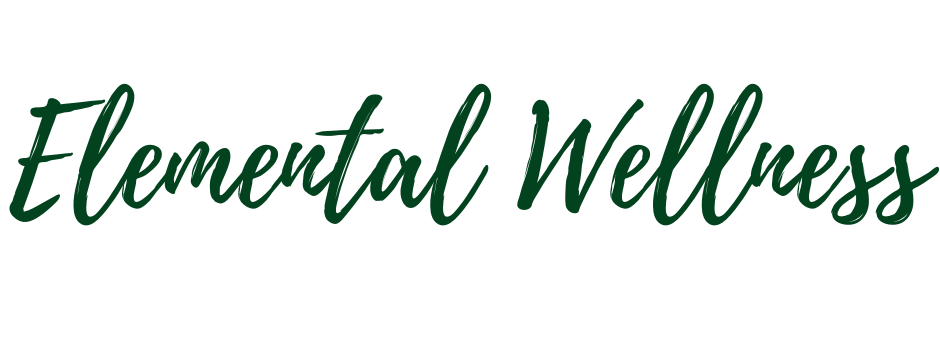Clean Living on a Dirty Planet
Imagine a regular day. You wake up from a long night’s sleep and walk to the bathroom. You shower, brush your teeth, do your hair/make up, get dressed, and head to the kitchen. You brew yourself a cup of coffee and sit down with a bowl of cereal for breakfast. A pretty typical day.
And you’ve just been exposed to an estimated 126 chemicals according to the FDA. (Personally, I think it’s more)
Let’s rewind. The mattress you slept on is covered in flame retardants as is the carpet you walk across. These things along with the paint on the walls are off-gassing formaldehyde and other particles into the air you breathe. You shower in water that has been treated with chlorine and contain trace amounts of herbicides and even pharmaceuticals. You have washed your hair and body with products containing endocrine disrupting chemicals such as parabens and phthalates. Your toothpaste and mouthwash contain fluoride, artificial colors, and microplastics and your deodorant contains aluminum and preservatives. You are further exposed to endocrine disrupting chemicals, preservatives, and carcinogens in your hair products and make-up. You spray on some perfume or cologne containing especially potent artificial fragrance. All the while breathing in benzene fumes from the toilet deodorizer you installed. The clothes you put on have been dry cleaned using chemicals known to cause nerve damage and memory loss. You drink your morning coffee that has been treated with pesticides and concentrated in the hot liquid along with plastic leached from the K-cup container. Your cereal is also ladened with pesticides, artificial colors, and refined sugar. All of this before you’ve even left your house and been exposed to the really harsh stuff found in car exhaust, pesticides on the lawn, and god-knows-what at work. (And this description is the truncated version of this story!)
Suffice it to say, we are exposed to more chemicals than ever before. Many of them are either poorly studied or outlawed in other countries due to their risk of causing severe disease. Some of the worst offenders are:
Plastics: containing endocrine disruptors such as BPA and their substitutes (don’t be fooled. BPB is just as bad!)
Phthalates: found in vinyl, plastics, and ‘fragrance/perfume’
PFC’s: found in non-stick items including cookware, food packaging, and dental floss
Organophosphate pesticides: such as Round-up (did you know that all non-organic wheat is sprayed prior to harvesting?)
Fire Retardants: responsible for several terrible effects on the human body
Heavy Metals: such as lead, arsenic, and mercury
Daily exposure to toxins like these increases risk of cancer, mood disorders, respiratory disorders such as asthma, diabetes, thyroid conditions, hormone irregularities like infertility and early menopause, and even cognitive decline and dementia. Our environment is polluted and there is no question it is making us sick.
The good news is that, with a little effort, you can significantly reduce exposure in your home. To avoid becoming completely overwhelmed, I have broken up the home into sections and give a few recommendations for how to live cleaner.
Food:
Organic is no doubt the best. But eating everything organic is not practical for most of us so prioritizing animal products (meat, poultry, fish, and diary) is a good idea. Look for grass-fed and free range whenever possible.
For fruits and veggies, use the Dirty Dozen and Clean 15 lists put out yearly by the Environmental Working Group to prioritize which produce is worth buying organic and which are safe to go conventional.
Water:
Invest in a quality water filter. Check here for more discussion on that by the EWG
Avoid drinking out of plastic water bottles, especially if they have been heated by the sun or warm temperatures.
Air:
Open your window to completely air out the house on a weekly basis. This is the best way to reduce exposure to off-gassed chemicals from walls, floors, and furniture.
Use houseplants to purify the air.
Household:
Luckily, there are many ‘clean’ products now available for your home. Be sure to read the labels so that you are not fooled by marketing and to assure the product is truly free from unwanted chemicals.
Make your own all-purpose cleaner by combining 1 part white vinegar and 1 part water. Adding some essential oils such as lemon and rosemary boosts the cleaning, grease cutting, and deodorizing effects.
Avoid air fresheners and candles with fragrance or perfume on the label. This indicates a blend of artificial chemicals that is ‘proprietary’ and used as a way to avoid listing ingredients such as phthalates. Inhaling these things is particularly harmful.
Kitchen:
Switch to glass or stainless steel food storage containers.
Ditch non-stick pans and opt for stainless steel or cast iron.
Personal Care Products:
There are tons of ‘clean’ cosmetic and personal care lines available these days. And apps like this can help you make healthier choices
Want a cheat code? Look for products that use only natural fragrances such as essential oils or are fragrance free. These are always going to be the better option, even if they aren’t perfect.
At this point, most people are beginning to feel a little overwhelmed. That’s normal. But don’t worry, every small change you can make will have big payoffs. Start slow and grow over time. Choose one way you can reduce toxin exposure and focus on that. Perhaps you can start eating more organic foods or get a water filter. Or maybe you are about to run out of shampoo or deodorant and can take the opportunity to find a better brand. There is no need to throw out your entire cabinet of cleaning supplies or drawer of makeup. But when the opportunity arises to make a better choice, I hope you have a little more knowledge to help you clean up your home. Please don’t hesitate to reach out if you want even more information or ideas for living clean on a dirty planet!
